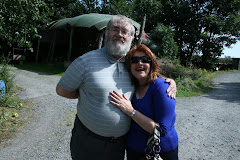Went to the British Museum on Monday to see one of the most advanced and sophisticated early societies that flourished over 3,000 years ago. The average Egyptian life-span was short, usually less than 35 years old so naturally, all their thoughts and time was spent in the after-life as for most ancient Egyptians, death was not an end, it was merely the entering of a new phase of being. However, the way to eternal paradise was littered with obstacles, dangers and challenges which could only be overcome by means of magical spells. The bodies were buried with a collection of these magical spells written in what is called: the Book Of The Dead, to empower, protect and sustain him in the after-life. These books written in papyrus rolls are often beautifully illustrated, they provide a fascinating and graphic insight into the ancient Egyptian beliefs about the life after death. The Egyptians believed that through these spells the soul ( ba ) could re-enter their dead body at will. Among the known spells are those for obtaining air, food and water; for transforming the body into another form, for warding off hostile snakes and crocodiles; for preventing the heart from disclosing all your sins in a final judgement.
The Egyptians used images which were believed to serve as receptacles for supernatural power as well as magical words of a spell were chanted that would cause whatever was desired to happen. The same magical potential was also contained in the written word. When these images and words, were inscribed in the walls of a tomb or on an object placed inside it, the words perpetuated the magical effect of a spell, or gave the dead the means to use the magic for themselves. These latter texts made the dead the masters of their own destiny, freeing them from total dependency on the living to keep their spirits alive. The purpose of the spells was to ensure that the dead were fully equipped with the powers and sacred knowledge which they would need to obtain eternal life.
Spells, gave them control of every part of their being - not only the physical body but also the spirit aspects, particularly the ba, which was the Egyptians' nearest equivalent to the modern notion of the 'soul'. The ba or soul had the freedom to leave the body in the tomb and to visit other parts of the cosmos - the world of the living, the sky, before reuniting itself with he mummy each night. The texts provided details of places which the dead would come to and divine beings whom they would meet. All these encounters were rites of passage - quite literally, for the dead had to display their knowledge of sacred matters to prove to the gods that they were worthy to pass on to paradise. The ultimate test of this kind occurred in the hall of judgement where the gods examined the deceased's conduct during his life.
Thursday, 11 November 2010
Subscribe to:
Post Comments (Atom)
































































.jpg)
.jpg)










































17 comments:
They weren't totally independent though, Maria, because it was possible to murder someone posthumously! If the deceased's name could be erased in every place where it had been written, the deceased would die. For this reason I believe that sometimes the name of the dead one would be written in various places in the tomb where it wasn't likely to be spotted, e.g. behind objects or in niches etc.
Yes, recently they found a whole city where the images had been defaced and the names chiseled out. The archeologists tried to find out what was the reason and in the end they concluded that this king had a controversial idea of just believing and worshiping only one god: The sun and forsaking all the other gods, so eventually people turned against him. I think it was during the reign of Nefertiti and her husband but Nefertiti's face is in the British Museum, so maybe that escaped the destruction.
I think the pharaoh was Akenaten, and he tried to introduce the cult of the solar disc, the Aten. Yes, they did their best to completely obliterate his name, which is ironic since we know about him thousands of years later.
Akenaten, yes, in a way it is true that by writing your name inside a huge building with your painting and sculpture people in the future will still know about you even if you have died 3,000 years ago so we can say that they have attained a kind of immortality and be remembered after so much time has elapsed. Have you noticed the similarities with the Christian beliefs of: One god and not many, the idea of a final judgement of the soul, prayers for your soul, Resurrection. As Christianity came much later, it makes me wonder if they were influenced by the Egyptians in these exact ideas where the soul or ba resurrects but they have substituted the Book Of The Dead for Christ.
Hi Maria
Oh, I should think that Christianity was influenced by a number of things. After all, anyone who tries to create a new religion from completely new principles is going to be labelled a crank, pure and simple. There isn't much that's new in the realms of morality and religion.
It's difficult for us to get inside the mindset of an ancient society. For instance, with the position of the Pharaoh, this wasn't just one man grabbing all the power for himself. The Pharaoh was a vital part of the society, for only he could ensure that the Nile would flood at the right time, and not too much or too little, etc.
In some societies, being the King was virtually a prison sentence. A King might find himself literally tied up in his house, unable to move or do anything, while his courtiers ministered to his every need and made sure that nothing happened to him. That was the important point, that nothing should happen to him, otherwise the harvest might fail, or the sun might not return, or whatever.
Yes, but its strange how the old gods like the Greek gods were simply put aside and forgoten in favour of new gods and beliefs. Now we have stuff like the scientologists or the mormons. The mormons have their own bible that was supposedly discovered in the U.S. of all places would you believe?
Yes, the king in Egypt was a semi-god but just like in any other court, there were always palace plots from the inside by the relatives of the king who wanted to gain power. Of course, from the people's point of view the king was close to god as it was in Japan as recently as the second world war, where the Americans forced the Japanese Emperor to tell his people he was not divine.
I don't think the change to monotheism happened overnight. It wasn't until the start of the fourth century AD that Christianity became the official religion of Rome, and even then the Christians were careful to have all kinds of saints, angels, devils and demons, so the plurality of the old beliefs was to a certain extent retained.
Mind you the Jewish are and were monotheists. Christ also believed in just one God but its true to say that Christianity translated differently when it arrived in Rome with the many saints and not completely letting go of their recent polytheist beliefs at a stroke. It was the Emperor Constantine who converted to Christianity and brought it to Rome, we know this is how it got there but I'm puzzled how did he managed to instil this new religion to his people? as it is very difficult to make anyone change their beliefs. I would imagine it had to have been by sheer brute force like Constantine did with Byzantium which he later called Constantinople (after him)
Or.. Perhaps the old gods stopped having any relevance in their every day lives like its happening now in Europe where Christianity is losing ground amongst the younger population where scores of chapels have been sold and been converted into dwellings. Also the numbers of priests and monks is decreasing to the point where the normally reclusive Roman Catholic Capuchin monks order is in such perilous decline, that it has been obliged to take the unprecedented step of advertising for new blood in the Swiss banker's Alpha magazine! ( very unlikely recruits) The monks say that there are hardly any people joining the order these days and this is why they placed the advert. The advertisement appeared in the banking and insurance section it calls on young Catholic bankers aged between 22 and 35. But life in the order is as far removed from an average banking or insurance executive's lifestyle as its possible to get. The advert makes it clear. "We offer you no pay, but spirituality and prayer, contemplation, an egalitarian lifestyle, free of personal material riches." So it is obvious that Christianity is losing hold of the new generation and normal people may be seeking for some other spiritual guidance other than Christianity. Right now, there are two major religious currents vying for recruits: The Muslims and the Christians. We cannot forget Terry Jones from Florida who very nearly came to burning the Koran. These are two opposite strong religious faiths who happen to be at war with each other, even though Obama claims its not a war against Islam in the end, this is how normal people perceive it to be.
Hi Maria
I think that Christianity would be the ideal religion for bankers. Take the Atonement. After a lifetime of wrongdoing, they can just offload all their sins on to Jesus who will bear their wrongdoings for them - just like the Government took over all the bankers' debts.
But seriously, I don't see religion having much of a presence 200 years from now. As for the young men who want to go out killing for their god, my advice to them would be to take up motor racing or mountain climbing, or some other peaceful pusuit where they can work off their hormones until they are properly grown up.
Remarkably, the dramatic decline in new recruits to replace the monks and nuns who die, has coincided with an increment in the number of "stressed executives" seeking temporary escape from the rigours of their jobs by going on weekends or weeks of spiritual contemplation that are now offered at several monasteries in Europe. In the end, lots of money doesn't make happiness. There is a spiritual need and it would be a shame if monasteries disappear since they do have a very important place in society. In India a monk is reveared as a saint.
I beg to differ. I really think religion will still be here with us in 200 years time. Religion offers people the belief in immortality and in the life hereafter. It also gives guidance when it advices on things like: 'Hate the evil and the places where it is rife, it draws you with its false splendour and will tempt you, as the devil tried to tempt Christ by showing Him 'all the kingdoms of the world, and the glory of them' and saying to him 'All these things I will give you, if you will fall down on your knees and worship me' said the devil to Christ. There is an admirable example to follow here, mainly to resist temptation and it also shows you there is something better than the glory of the things of this world and its not just money nor power. Also, the promise of immortality, in the life hereafter with God. There is something immensely reassuring and comforting about this, which will never go away.
Hi Maria
I know that people want immortality, and I know that material comfort isn't enough for happiness. Most people know this. But it's surprising how many of them manage to forget it, when they hsave their TVs and cars and computers. Put simply, people tend to turn to religion at times of crisis, when they're very ill, or they're old and nearing death, or a loved one is in danger. Not all are like that, but most are. All of a sudden god looms large, because they want something from him.
The reason religion has declined in the west isn't just due to material riches, as though if you took away people's TVs etc they would turn to their gods. Religion is on the wane because people are now safer, warmer, better fed, better housed, better clothed and less likely to die young from some painful illness than they were in the past.
Take their TVs away, and they just become bored. Give them bubonic plague, and they become religious.
Imagine that everyone was guaranteed to live for 1000 years. In which century of their lives do you think they'd become religious? My guess is, the last.
That last post you wrote was a very good and the one about Christianity being the perfect religion for bankers is really witty and funny too. You wrote
"With the Atonement, on bankers: "After a lifetime of wrong doing they would offload their sins on to Jesus who would bear their wrongdoings for them" Yes, there is something fundamentally wrong there that someone else (Jesus) has to pay for someone else's sins. It would be like jailing an innocent person and leaving the guilty free to do what they want again. Robert, what do you think about giving the other cheek when you have been slapped ?
Hi Maria
On "resist ye not evil" and turning the other cheek : I'm against it. However, I realise that a few people wish to lead their lives that way, and if that's what they want, then it's up to them. But they're only entitled to turn their own cheek. They're not entitled to turn other people's cheeks.
It is a literal cheek. I'm afraid I would have problems with that as it would only encourage a bully.
The whole thing is dangerous.
In Germany during the nazi era there was a bunch of brave and foolish people called the order of the White Rose or some such name. They stood in the street handing out pacifist literature in full view of the Gestapo. They were arrested within minutes and probably killed within a few more.
Post a Comment